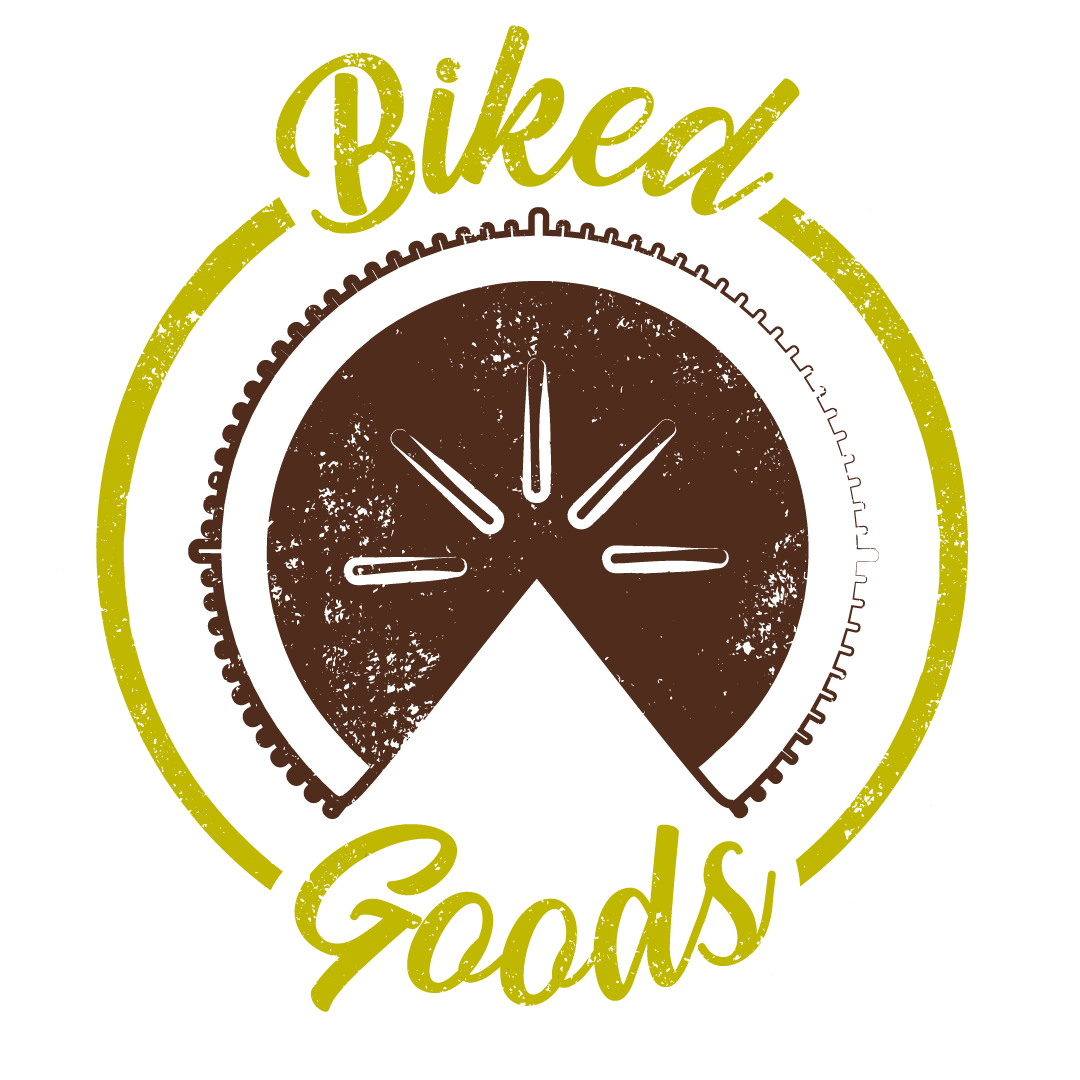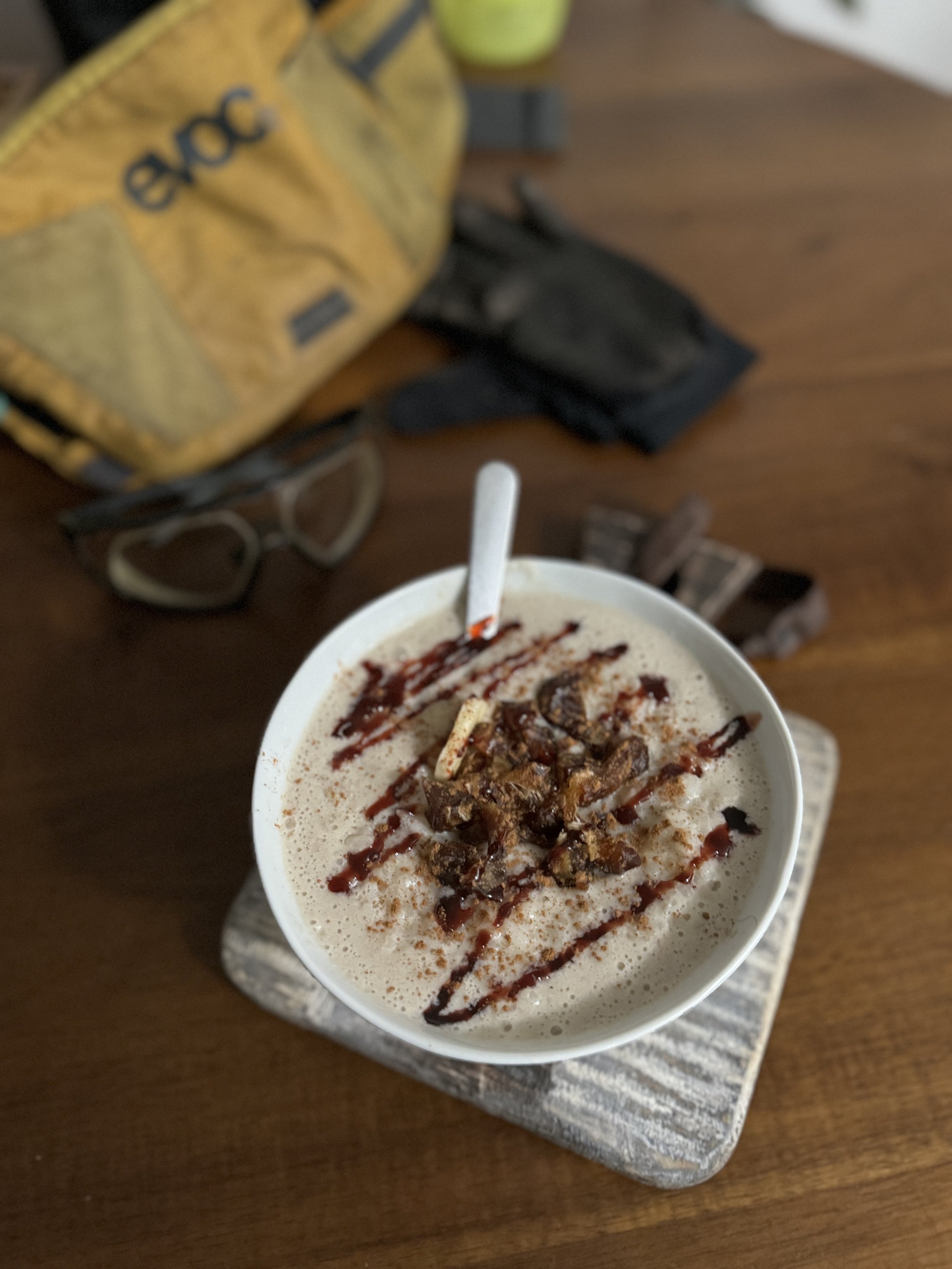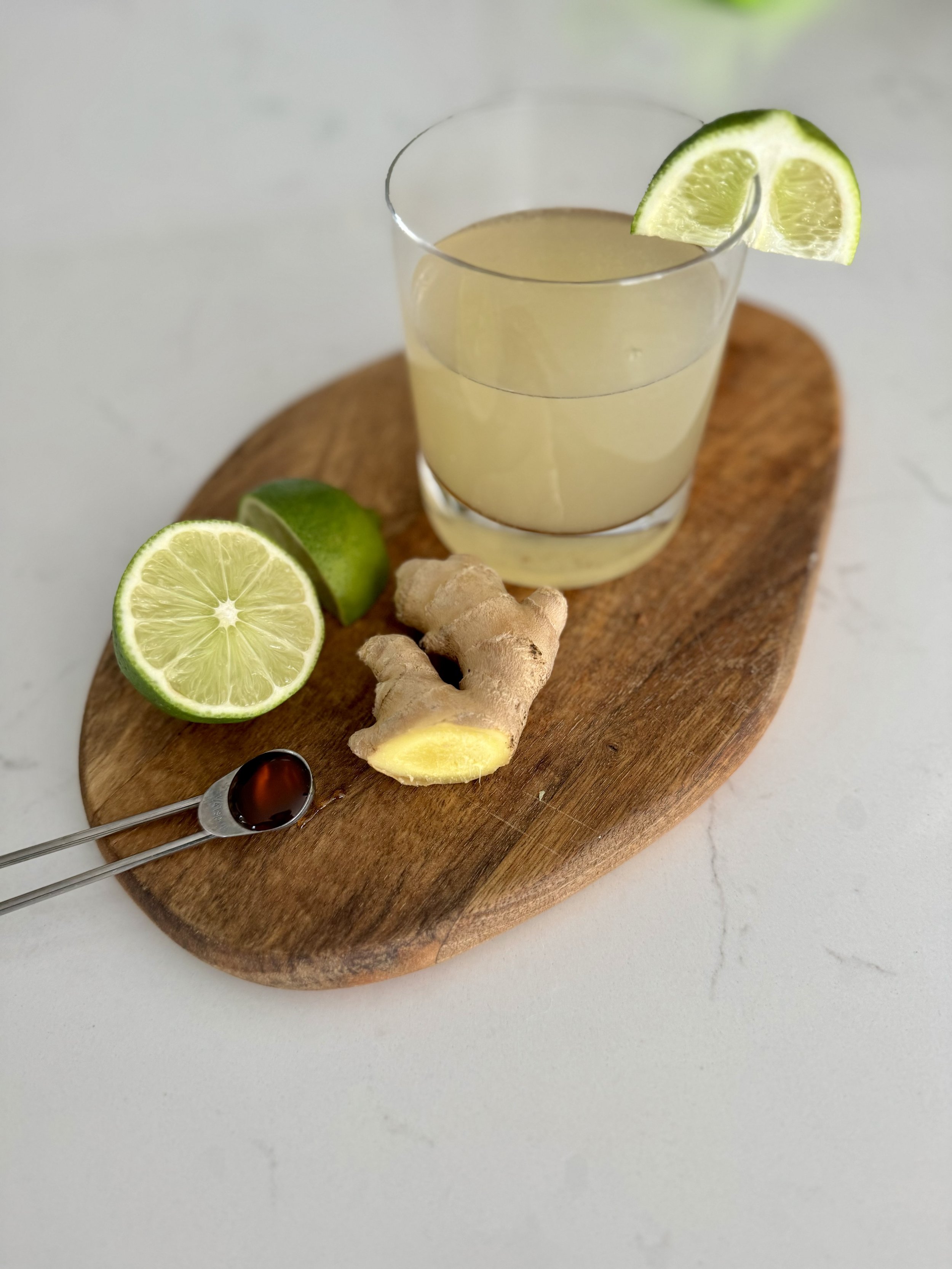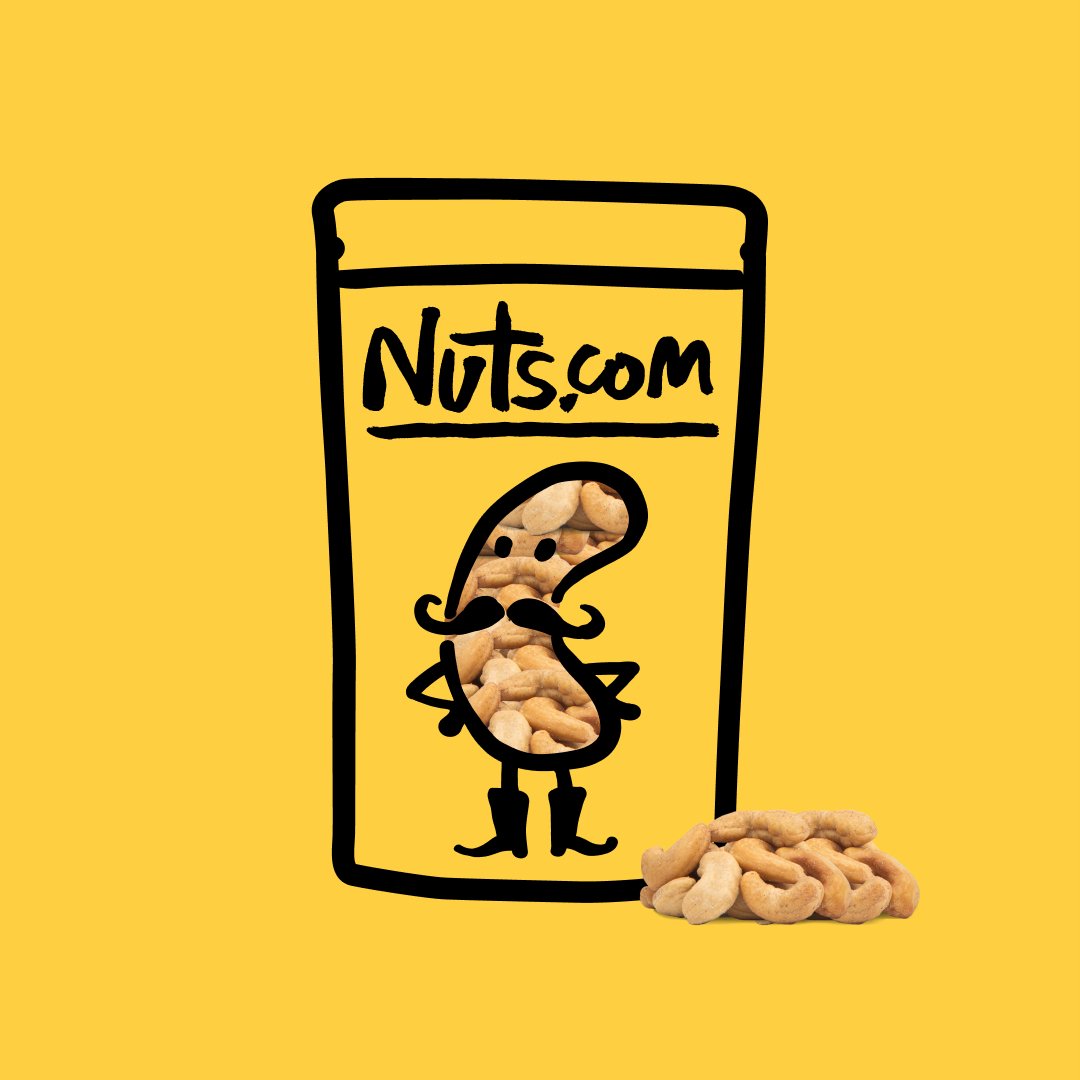5 Nutrition Strategies to Keep You Energized as Training Volume Ramps Up
Is Your Fueling Keeping Up With Your Training?
As your rides get longer and your training blocks grow bigger, your body’s demand for energy, recovery, and nutrients increases too. But if your nutrition isn’t keeping pace, you might start feeling it—sluggish legs that refuse to wake up, low energy after training, slow recovery between sessions, sore muscles that just won’t quit, and an appetite that feels impossible to satisfy.
If this sounds familiar, here’s your reminder: Food is your training’s best friend.
Dialing in your nutrition doesn’t just help you push through tough rides—it helps you thrive in them. When you fuel strategically, you recover faster, ride stronger, and show up to every training session ready to perform.
Let’s break down five key nutrition strategies to keep you energized as your training volume ramps up.
1. Eat Enough - Seriously!
Now is not the time to restrict calories. The best equipment, training plans, and coaching won’t matter if your fuel tank is empty. Your body needs fuel to keep up with the increased demands of training. Prioritize whole, nutrient-dense meals and snacks to recover efficiently.
Tips to help you eat enough:
Eat within 1-1.5 hours of waking up. Eat every 3-4 hours after that.
Eat 3 meals a day and 1-2 snacks in between meals to stay satiated and meet calorie needs. Note - this tip looks a little different for everyone.
Snacks between meals should contain a complex carb + protein + optional healthy fat. Pairing these macronutrients together will help you stay full longer, keep you energized, and prevent the unforeseen cupboard snack attack.
Fuel up with carbs for optimal performance. Read tip #2 for insights on eating enough before, during, and after training.
Signs you are not eating enough:
You’re constantly hungry or thinking about food
Low energy and brain fog
Training plateaus or poor recovery from training
Poor sleep
Getting sick or injured often
Feeling addicted to sugar/carbs
2. Carbs = Your Best Friend for Energy
Carbohydrates are the primary fuel for cyclists, especially during moderate to high-intensity efforts and higher training periods. They break down quickly into glucose, which your muscles use for immediate energy, while excess is stored as glycogen in the muscles and liver.
However, glycogen stores are limited (about 1,000–1,500 calories worth), so without replenishment, energy levels drop, leading to fatigue or "bonking." To maintain endurance and power, cyclists need to consume carbs strategically—before a ride to top off glycogen, during long rides to sustain energy, and after to aid recovery.
Unlike fat, which is slower to burn, carbs are rapidly converted into glucose, fueling muscles during intense activity. And since you don’t have many carbs stored, this means that you need to eat A LOT of carbs!
So to repeat…
Fuel before your rides with 1-4g per kg of body weight in carbs consumed 1-4 hours before training/racing. Eat 4g per kg of body weight 4 hours before a ride, 3g per kg of body weight 3 hours before a ride, etc.
Take in carbs during rides to keep from bonking.
Consume 30-60g of carbs during rides lasting 1-3 hours.
For rides longer than 3 hours, work up to consuming 90g of carbs per hour during training
Replenish post-ride with carbs to reload glycogen stores. During the first 2 hours after a ride, carb replenishment is most rapid at 150%. Aim for a post-ride snack with a 4:1 carb-to-protein ratio immediately after a ride. Follow your snack with a well-balanced meal no later than 2 hours after your ride.
Once you fall behind on fueling, it’s hard to catch up—so stay ahead of it!
3. Protein = Faster Recovery
Your muscles are working overtime as training stress increases. Give them what they need to rebuild and repair by aiming for 20-30g of protein per meal and 10-15g of protein per snack between meals. Timing of protein intake, particularly post-exercise, can enhance recovery and adaptation processes.
Some high-protein recovery meal and snack ideas:
Greek yogurt + Chocolate Maple Sea Salt Granola + fresh fruit
Nutrition Tip: Protein contains calories but isn’t turned into energy very inefficiently, so it shouldn’t be used as fuel.
4. Hydrate Like It’s Your Job
Proper hydration is vital to both our overall well-being and performance. Just a 2% dehydration rate results in negative performance effects.
Pro Hydration Tips
Aim to drink half of your body weight (lbs) in ounces (oz) of water every day
Start your day with a glass of water or Honey Ginger Limeade.
Anytime you’re sweating, you are losing electrolytes. This means you should drink electrolytes, not just water, whenever you are sweating! Aim to drink 16-24 ounces of fluids with electrolytes per every hour of sweaty exercise. (Skratch is a favorite)
Sodium is by far the most important electrolyte to replenish for adequate hydration. We can get sodium through sports hydration/recovery drinks, foods (pickles, broths/soups, olives, salted nuts, seeds, chips, pretzels), or a simple glass of water with a pinch of salt.
Calculate your sweat rate if you want a more precise way to determine your hydration strategy.
Staying hydrated helps the body break down food, making it easier for the body to absorb nutrients. It also helps lubricate our muscles, tissues, and joints. Lastly, hydrating helps facilitate blood flow to the heart, digestive system, and brain! Without proper hydration, our bodies simply can’t function properly.
5. Don’t Skip Healthy Fats
While carbs fuel your workouts, healthy fats play a crucial role in long-term energy, hormone balance, and reducing inflammation from intense training.
Include avocados, nuts (walnuts), seeds (flaxseed meal, chia seeds, hemp seeds), olive oil, and fatty fish in your snacks and meals to support endurance and recovery.
A little fat goes a long way—add a thumb-sized portion of healthy fats to your oatmeal, smoothies, grain bowls, etc.. to keep energy levels stable throughout the day. Cyclists should aim for 20–35% of their daily calories from healthy fats.
Bonus Tips: Priortize Rest and Recovery
More training doesn’t always mean better performance—how you recover is just as important as how you train. Here are a few other tips to prioritize rest and recovery in your overall health and performance plan.
Sleep: Aim for 7-9 hours per night to allow your body to repair and adapt to training stress. Put away your phone 1 hour before bed.
Rest Days: Give your body time to absorb the benefits of your training. Active recovery rides, short walks, or complete rest days can prevent burnout.
Mobility and Yoga: Loosen up tight muscles, improve flexibility, and help prevent injuries. Even 10 minutes a day makes a difference. Yoga with Adriene is a great free resource
Foam Rolling and Stretching: Keep your muscles happy by working out tension and promoting circulation post-ride. I have a Roll Recovery and Theragun. (HSA/FSA approved!)
Practice Breathwork: Practicing breathwork throughout the day helps regulate the nervous system, reduce stress, and improve oxygen delivery for better energy and focus—key benefits for cyclists and active individuals. Try box breathing (inhale for 4 seconds, hold for 4, exhale for 4, hold for 4) 2-3 times a day to promote calmness.
When training ramps up, recovery is your secret weapon. Don’t neglect it!
Want More Nutrition Strategies for Peak Performance?
Join my Nutrition Essentials Email Course for Cyclists—a free, no-BS guide to fueling smarter, recovering faster, and feeling stronger on and off the bike.
Sign up below to be enrolled in the free 5-day email course
During this free course, you’ll learn:
The 7 key nutrition essentials every cyclist needs to know
Simple strategies to build balanced meals for energy and recovery
How to set up your pantry for success in the kitchen
How to prep common ingredients for faster, easier meals
PLUS free real-food recipes and fueling resources
“Love the course! Very much in line with what I like to eat, yet it expanded on my go-to recipes and nutrition education. I will continue to follow Biked Goods. ”
— Doreen W.
Hi, I’m Tyler!
Founder of Biked Goods
Level I Precision Nutrition Certified Coach
Racing accolades: Breck Epic 2x finisher, MDH150, 244-Mile Day Across Minnesota, Firecracker 50 3x.
Team Summit Youth MTB Program Director and Coach
More Fuel From Biked Goods
For more cycling nutrition tips and recipes, start a free Bakin’ Biker’s Club membership, or check out more nutrition and baking tips below.
Bakin’ Biker ‘25 Cookbook
The 2025 edition of Bakin’ Biker is loaded with over 100 simple-to-prepare, energizing, and downright delicious real-food recipes designed for busy cyclists on the go.


























